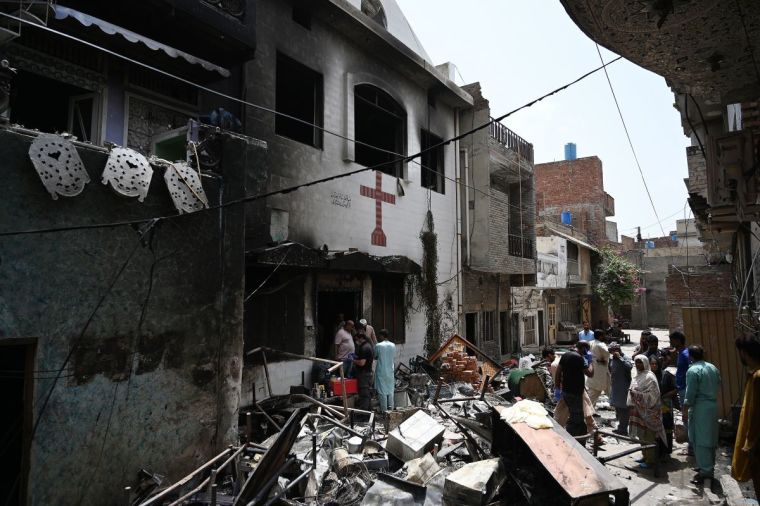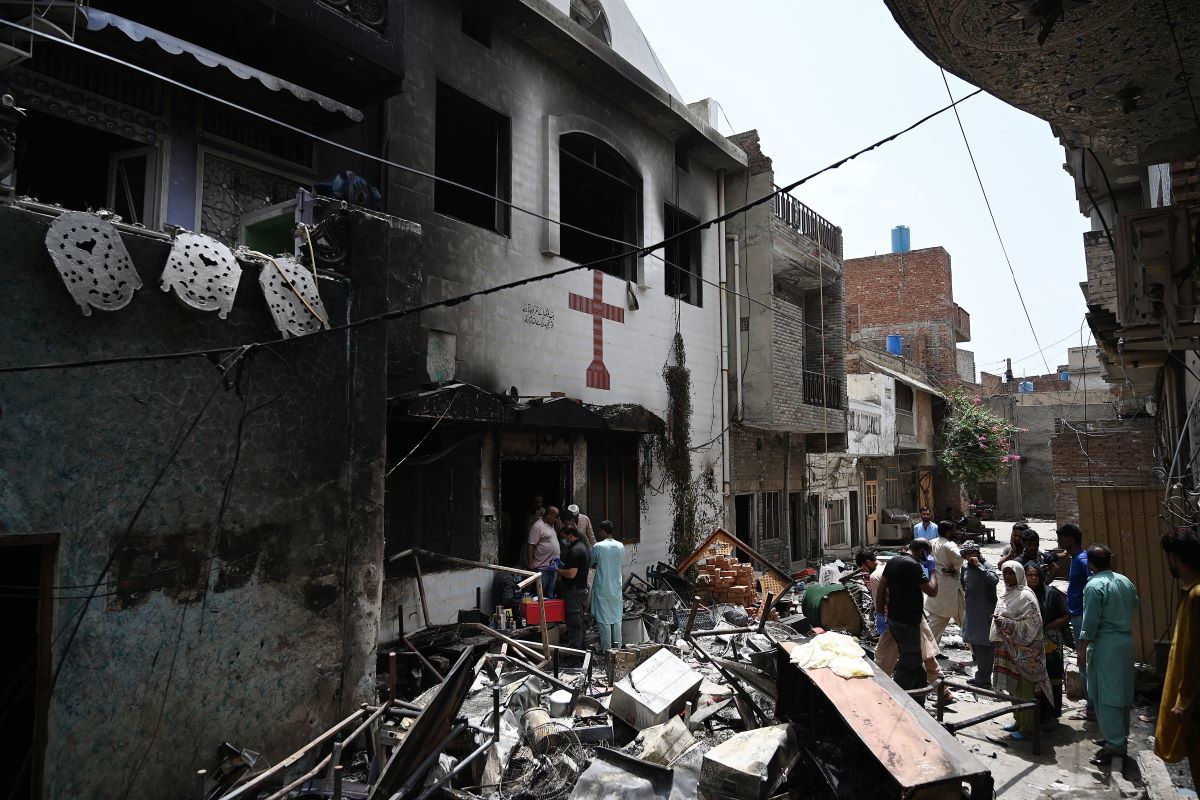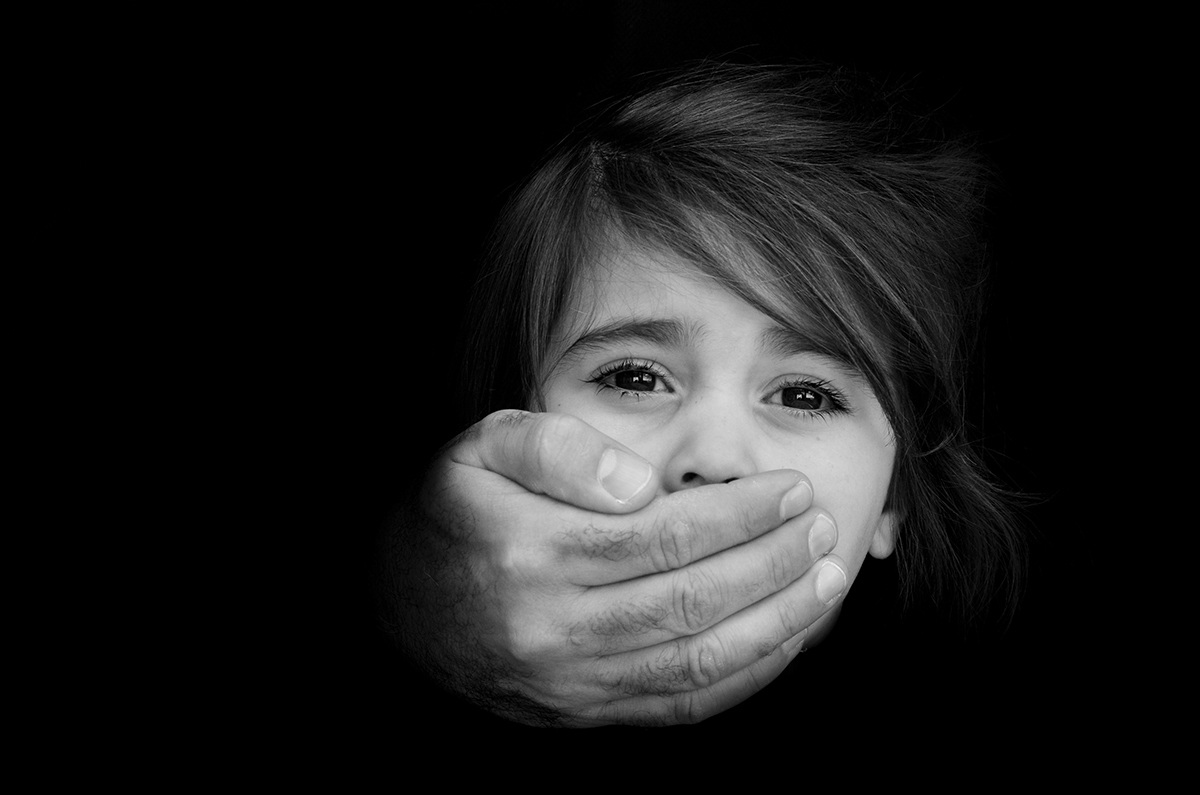
Police in Pakistan have arrested more than 100 people for attacking at least 21 churches and vandalizing dozens of homes in Pakistan’s Punjab province over allegations that two Christian men had desecrated a copy of the Quran, the holy book of Islam.
Thousands of Muslims led violent riots, burning churches and vandalizing homes, in a Christian colony in the city of Jaranwala on Wednesday. The unrest was ignited by claims that pages were torn from a Quran and blasphemous content was scribbled on them.
Police arrived at the scene about 10 hours later, residents and community leaders told Reuters, which said the police have denied that, saying they prevented even worse damage. Usman Anwar, the police chief in Punjab province, was quoted as saying that the lack of intervention was aimed at avoiding loss of lives by not escalating tension.
Police have arrested at least 128 people for vandalizing churches, the newswire added.
Catholic bishops have sought tough action against those who set 21 churches on fire, including the historic Salvation Army Church, and vandalized Christian homes, according to UCA News.
The Christian men falsely accused of tearing pages from a Quran, identified as Rocky Masih and Raja Masih, have also been arrested and are under investigation for blasphemy, a crime punishable by death in Pakistan, according to the BBC. Although no one has been executed for blasphemy in the country, mere accusations can lead to large-scale riots, lynchings and killings.
Public gatherings have been restricted for a week in Faisalabad district, including Jaranwala, in a bid to maintain control over the situation.
Videos on social media show protesters destroying Christian buildings as the police appear to watch without intervening.
Yassir Bhatti, a 31-year-old Christian who had to flee his home, told AFP, “They broke the windows, doors, and took out fridges, sofas, chairs, and other household items to be burned.”
The incident erupted after claims of finding torn pages of a Quran, allegedly discovered near the Christian colony with alleged blasphemous content, were taken to a local religious leader who urged Muslims to protest.
Extremist slogans in favor of the far-right Islamic extremist political party Tehreek-e-Labbaik and the Islamic group Khatam-e-Nabuwat were raised by local mobs. Pakistan is expected to hold general elections in the coming months.
“We have once again been confronted with open hatred and uncontrollable rage shown towards the Christian community,” Archbishop Benny Travas of Karachi said in a statement, according to Crux.
Travas underlined that the allegations of blasphemy had “yet to be determined.”
“I just cannot comprehend how my people would show disrespect to any religion or to any religious books,” he continued. “We, as a Christian community, have time and again displayed our fidelity to the nation of Pakistan, yet incidents like the burning of Christian homes in Gojra, Shantinagar, Joseph Colony, and now Jaranwala, show that we are in reality second-class citizens who can be terrorized and frightened at will.”
On Friday, Travas spearheaded a non-violent demonstration against the Jaranwala attacks at the Karachi Press Club. Also on Friday, the bishops’ Commission for Interfaith Dialogue organized a similar protest in Hyderabad. At both locations, participants expressed their condemnation of the violence, speaking out and displaying banners.
Religious-fueled violence is not new to Pakistan.
In the past, blasphemy allegations have led to mobs killing accused individuals, including a Sri Lankan man in 2019 and a group burning down about 60 homes, resulting in six deaths in Punjab in 2009.
Rights groups have long criticized Pakistan’s blasphemy laws, citing their misuse for personal gains. According to the Centre for Social Justice, over 2,000 people have been accused since 1987, with at least 88 killed on such allegations.
This violence follows the recent passage of two bills in Pakistan’s Legislature that have stirred concerns among Christian and civil society groups. The Criminal Laws (Amendment) Act 2023 increases punishment for blasphemy offenses, while the National Commission for Minorities Bill 2023 has been viewed as inadequate in safeguarding minority rights.
The ban against blasphemy, which carries no provision to punish a false accuser or a false witness, was expanded in the 1980s under military dictator General Zia-ul-Haq. According to The New York Times, the British government enacted the original laws in the late 19th century colonial era to keep people of different faiths from fighting each other.
In recent years, there have been several high-profile cases that have brought international attention to the issue.
In 2011, the governor of Pakistan’s Punjab province, Salman Taseer, was assassinated by his bodyguard for speaking out against the blasphemy laws.
That same year, Asia Bibi, a Christian mother of five, was sentenced to death for alleged blasphemy, sparking international outrage, leading to her acquittal in 2018 after spending eight years on death row.
Her acquittal drew the ire of radical extremist groups, as many protested in the streets and threatened to kill the Supreme Court justices responsible for setting her free.
Free Religious Freedom Updates
Join thousands of others to get the FREEDOM POST newsletter for free, sent twice a week from The Christian Post.




























![[Video] More – Aghogho » GospelHotspot](https://gospelhotspot.net/wp-content/uploads/2024/04/More-Aghogho.jpeg)
















